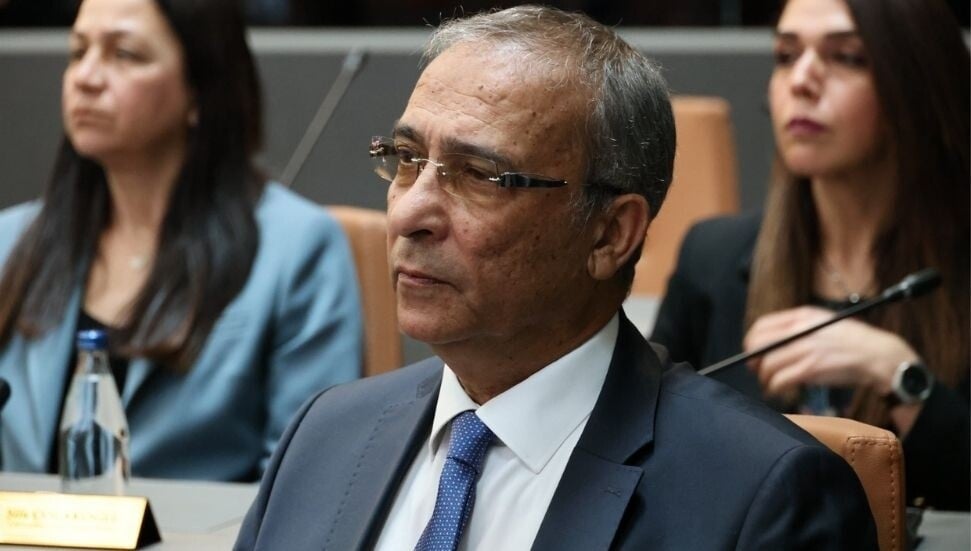Turkish Cypriots have been rendered “anxious, intimidated, and threatened” by the flurry of arrests made by the Republic of Cyprus of people accused of selling Greek Cypriot-owned property in the north, Turkish Cypriot opposition political party the CTP’s foreign relations secretary Fikri Toros said.
“These feelings are reviving previous traumas experienced between 1963 and 1974,” he told the Cyprus Mail, adding that Turkish Cypriots “were left with no choice other than having the use of the properties abandoned by Greek Cypriots in one way or another”.
He stressed the importance and the validity of the Immovable Property Commission (IPC) in resolving the island’s property issue, pointing out that its establishment in 2005 came about “with the guidance provided by the European Court of Human Rights” (ECtHR).
“In 2006, the ECtHR endorsed the IPC ads the only domestic legal mechanism in full compliance with the European Convention on Human Rights,” he added, saying that the only alternative would be a property commission established following a solution to the Cyprus problem.
“To date, the IPC has been providing effective remedy to Greek Cypriot claims for their abandoned properties in the north,” he said.
He then referenced the IPC’s latest statistics, released on Friday, which state that a total of 8,164 applications have been lodged and that 2,041 have been concluded, with £538,050,407 (€638,617,409) having been awarded in compensation to Greek Cypriot property owners.
The IPC also examines claims for compensation, as well as for restitution – the handing back of Greek Cypriot-owned property in the north – and exchange of land, with exchange and compensation having been awarded in two cases, restitution in five cases, and restitution and compensation in eight cases.
“In spite of the effectiveness of the IPC demonstrated by its performance and the related rulings of the ECtHR as the only legal mechanism fore individual Greek Cypriot claims, the Greek Cypriot police has been issuing arrest warrants and bringing legal charges to the current users of properties abandoned by Greek Cypriots in the north,” he said.
“While there is an effective legal mechanism in the north which has been specifically established to address the property claims of Greek Cypriots upon the guidance of the ECtHR, such acts are in violation of the said persons’ rights and in full disregard of the domestic legal remedy constituted by the IPC.”
This, he said, is “clearly a political decision taken by the Greek Cypriot administration to inflict inhibition aimed at the impediment of economic development”, something he said will “ultimately lead to a further isolation of Turkish Cypriots, to the point of suffocation”.
He went on to say that the ongoing arrests and court cases have “toxified the political climate on our common homeland”.
“While the UN secretary-general [Antonio Guterres] has taken a new initiative to create political ground fertile for the seeds of peace and conducive to the resumption of formal negotiations, such acts are detrimental, to say the least,” he said.
He added that the arrests are “not only aggravating the already existing mistrust between the two leaders,” President Nikos Christodoulides and Turkish Cypriot leader Ersin Tatar, but “are also jeopardising the much-needed confidence between the communities”.
“I have to share with you my profound concern that this situation will politically strengthen the constituency of sceptics and influence a further drifting apart of the communities,” he said.
Asked what steps he believes the Turkish Cypriot side can take in light of the situation, he said that “measures need to be taken to direct all property claims to the IPC”.
“At the same time, effective measures should be taken to speed up the processing of the applications at the IPC, pending the comprehensive settlement of the Cyprus issue,” he added.
Outside of the IPC, he said that “political dialogue between the two leaders under the auspices of the UN must be normalised and strengthened, together with simultaneous support and encouragement from international actors”.
“The status quo on our island is not static. Property is only one of numerous issues which makes the comprehensive settlement of the Cyprus conflict urgently imperative. Leaving the peace-building process dormant and attempting to make people victims of politics is simply not sustainable, and is thus unacceptable,” he said.
Toros has endorsed CTP leader Tufan Erhurman’s campaign to be elected Turkish Cypriot leader in October and played a large part in the party’s devising of a five-point plan for Cyprus problem negotiations, which was unveiled last September.
That plan stipulates that all convergences found at Crans Montana in 2017 must be adhered to and that there be no going back on the issues agreed on.
They also stipulate and that a solution be found on the basis of a bizonal, bicommunal federation with political equality, that the negotiation process be “results-oriented” and that no party leaves the negotiating table, that the negotiating process have “a timetable with a sense of urgency”, and that it be impossible to return to the status quo once negotiations begin.
On the matter of property, Christodoulides had last week insisted that the arrests “will certainly not stop, no matter what Tatar says”, adding that “illegality cannot be justified in any way”, but also somewhat distanced himself from the arrests, insisting that “we do not interfere in the judiciary”.
Tatar had described the arrests as “acts of terrorism” and likened the moves to the violence faced by Turkish Cypriots in the 1960s and even refused to meet Christodoulides in response to them.
Two Hungarian nationals were handed prison sentences over the matter earlier this month, with the pair having admitted to promoting and advertising the sale of houses near Kyrenia on the internet.
Meanwhile, the case of a German national who reportedly spoke about selling property in the north to an off-duty police officer during a flight to Larnaca is ongoing, and arrest warrants have been issued for four Turkish nationals in connection with developments in the Famagusta district village of Lefkoniko.






Click here to change your cookie preferences